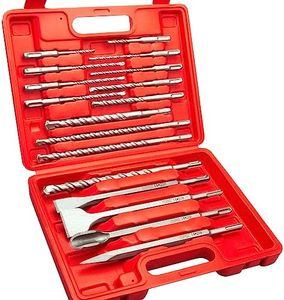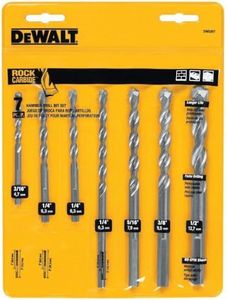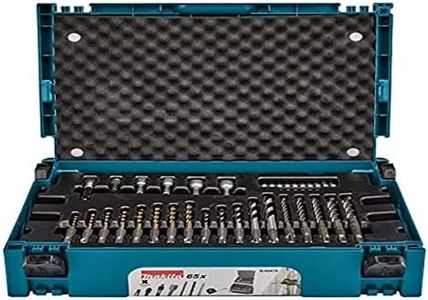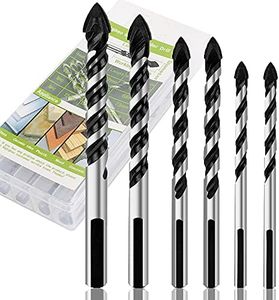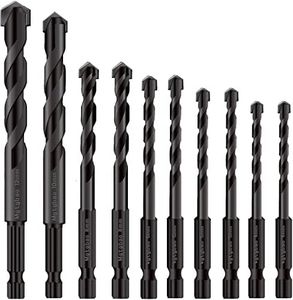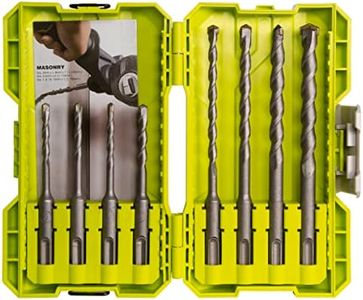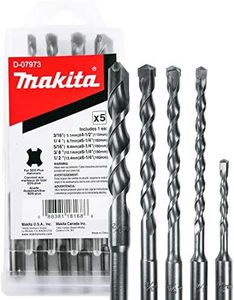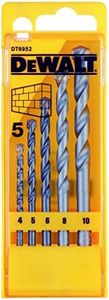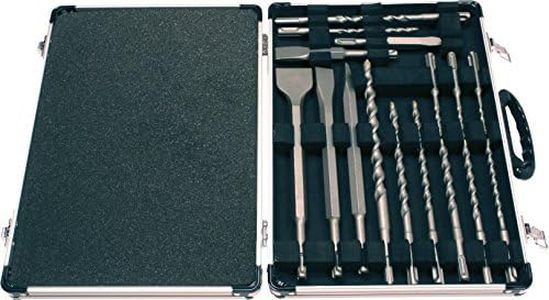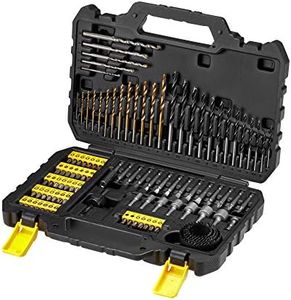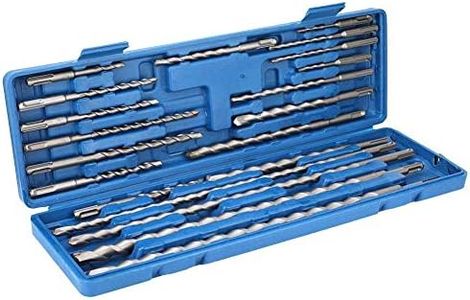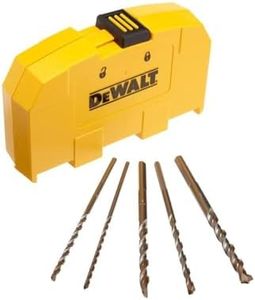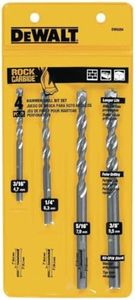We Use CookiesWe use cookies to enhance the security, performance,
functionality and for analytical and promotional activities. By continuing to browse this site you
are agreeing to our privacy policy
10 Best Masonry Drill Bit Sets
From leading brands and best sellers available on the web.By clicking on a link to a third party's website, log data is shared with that third party.
Buying Guide for the Best Masonry Drill Bit Sets
Choosing the right masonry drill bit set is all about matching your tools to the jobs you need to do. Masonry drill bits are designed specifically for drilling into tough materials like brick, concrete, stone, and mortar. The right set not only makes your work faster and easier, but it also helps prevent unnecessary wear on your tools and reduces the risk of damaging your workpiece. Before choosing a set, think about the types of materials you'll be drilling into, the type of drill you have, and how often you expect to use the bits. With the right set, you’ll get cleaner holes, safer operation, and tools that last longer.Material of the Drill BitsMasonry drill bits are commonly made from materials like high-speed steel (HSS) with a carbide tip or sometimes solid carbide. This spec is important because tougher materials are better able to handle the abrasion and heat from drilling into masonry. Carbide-tipped bits are generally more durable and last longer, making them suited for frequent use and harder materials, while HSS bits are more affordable and fine for occasional or lighter-duty work. If you do a lot of heavy-duty drilling in hard masonry, aim for carbide tips, but for basic home tasks or softer bricks, HSS with a carbide tip will do the trick.
Bit Size RangeThe size range tells you how thick and long the drill bits are in the set, affecting the diameter and depth of the holes you can make. This is important because different projects require different hole sizes, whether it’s for anchors, pipes, or installing fixtures. Bit sets usually come with a range of sizes—some offer just a few common diameters, while others provide many choices for more flexibility. If you’re unsure, choose a set with more variety so you’re ready for different jobs, but if you usually stick to one type of work, a focused set of sizes you actually use will serve you better.
Shank TypeThe shank is the end of the bit that goes into your drill, and comes in types like round, hex, or SDS. Shank type is important because it must match the chuck of your drill for proper fit and performance. SDS shanks are made for rotary hammer drills and heavy masonry work, hex shanks fit securely and prevent slipping in standard chucks, and round shanks are basic but sometimes slip under high load. Make sure you match the shank type to your drill—if you use a hammer drill, SDS is ideal, but for general-purpose drills, hex or round shanks are more common.
Length of Drill BitsDrill bits come in various lengths, which determines how deep a hole you can make. Longer bits can reach through thick walls or deep into materials, while shorter bits offer better control and less chance of bending. Choose the length based on your most common tasks—short bits for shallow holes and stability, long bits for deep or hard-to-reach places.
Coating or FinishSome drill bits have protective coatings like black oxide or titanium nitride, which can help reduce friction, prevent rust, and prolong bit life. This feature is especially important if you expect to store your bits in damp conditions or work on tough materials frequently. If you only do occasional jobs, this may be less critical, but for frequent or professional use, a good coating is a plus.
Number of Bits in the SetSets can range from just a few essential bits to dozens. More bits mean more versatility, but can also mean you’re paying for sizes you never use. Think about your common projects—if you always need a standard size, a small set is enough. If you do a lot of varied work, look for a set with a broader assortment.
